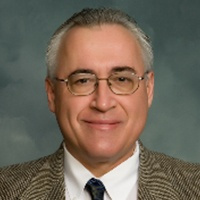Yoder Felony Lawyer, Indiana
Sponsored Law Firm
-
 x
x

Click For More Info:
-
Roscoe Stovall Jr. & Associates
2 West Main Street Mooresville, IN 46158» view mapAccident & Injury Law Working Relentlessly For You
Let Roscoe Stovall Jr. & Associates handle your Accident & Injury case.
800-847-2831
Not enough matches for Yoder Felony lawyer.
Below are all Yoder Criminal lawyers.
Michael Richard McEntee
✓ VERIFIED *Status is reviewed annually. For latest information visit hereAccident & Injury, Workers' Compensation, Divorce & Family Law, DUI-DWI, Wills & Probate
General Practice and Workers Compensation since 1977
My name is Mike McEntee and I have been practicing law in Fort Wayne for over thirty years. I was born and raised here and my three children all went ... (more)
Megan Lynn Close
✓ VERIFIED *Status is reviewed annually. For latest information visit hereCriminal, Divorce & Family Law, Estate, Traffic, Employment
Megan Close is a dedicated individual who commits her life and practice to the service of others. If you are looking for someone who you can trust, lo... (more)
Suzanne M. Wagner
Criminal, Estate, Divorce & Family Law, Lawsuit & Dispute
Status: In Good Standing *Status is reviewed annually. For latest information visit here
Aaron J Butler
Estate Planning, Family Law, Criminal, Bankruptcy
Status: In Good Standing *Status is reviewed annually. For latest information visit here
Gregory A. Miller
Motor Vehicle, Divorce & Family Law, DUI-DWI, Criminal
Status: In Good Standing *Status is reviewed annually. For latest information visit here
Patrick Justin Arata
Misdemeanor, Felony, DUI-DWI, Criminal
Status: In Good Standing *Status is reviewed annually. For latest information visit here
Donald Carl Swanson
Health Care, Felony, Criminal, Bankruptcy
Status: In Good Standing *Status is reviewed annually. For latest information visit here Licensed: 52 Years
Donald C. Swanson
White Collar Crime, DUI-DWI, Health Care, Felony, Criminal
Status: In Good Standing *Status is reviewed annually. For latest information visit here Licensed: 52 Years
Scot Thomas Skekloff
Litigation, Felony, Corporate, Bankruptcy
Status: In Good Standing *Status is reviewed annually. For latest information visit here Licensed: 34 Years
Andrew David Boxberger
Commercial Real Estate, Government, Felony, Corporate
Status: In Good Standing *Status is reviewed annually. For latest information visit here
 Roscoe Stovall Mooresville, IN
Roscoe Stovall Mooresville, IN

